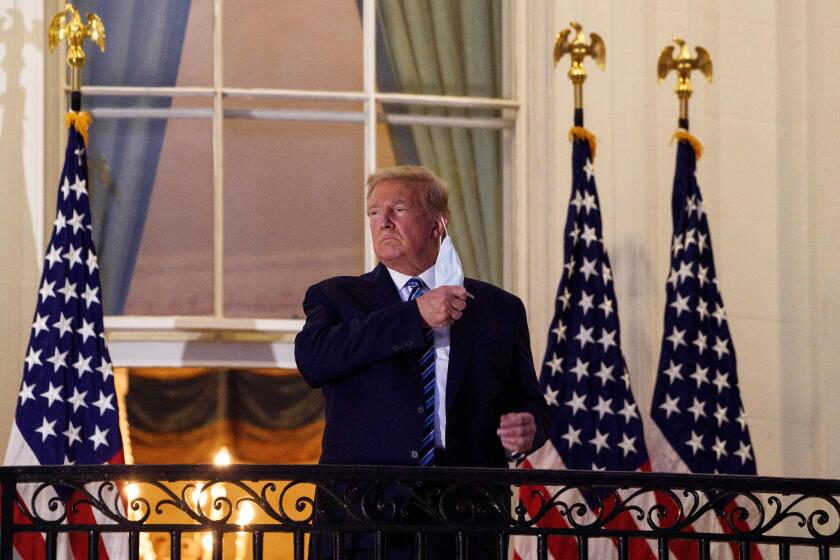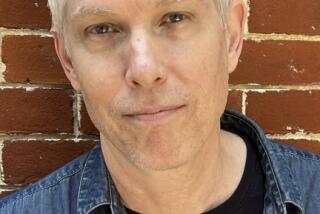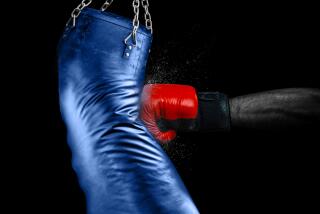Review: How a California acid trip made Michel Foucault a neoliberal
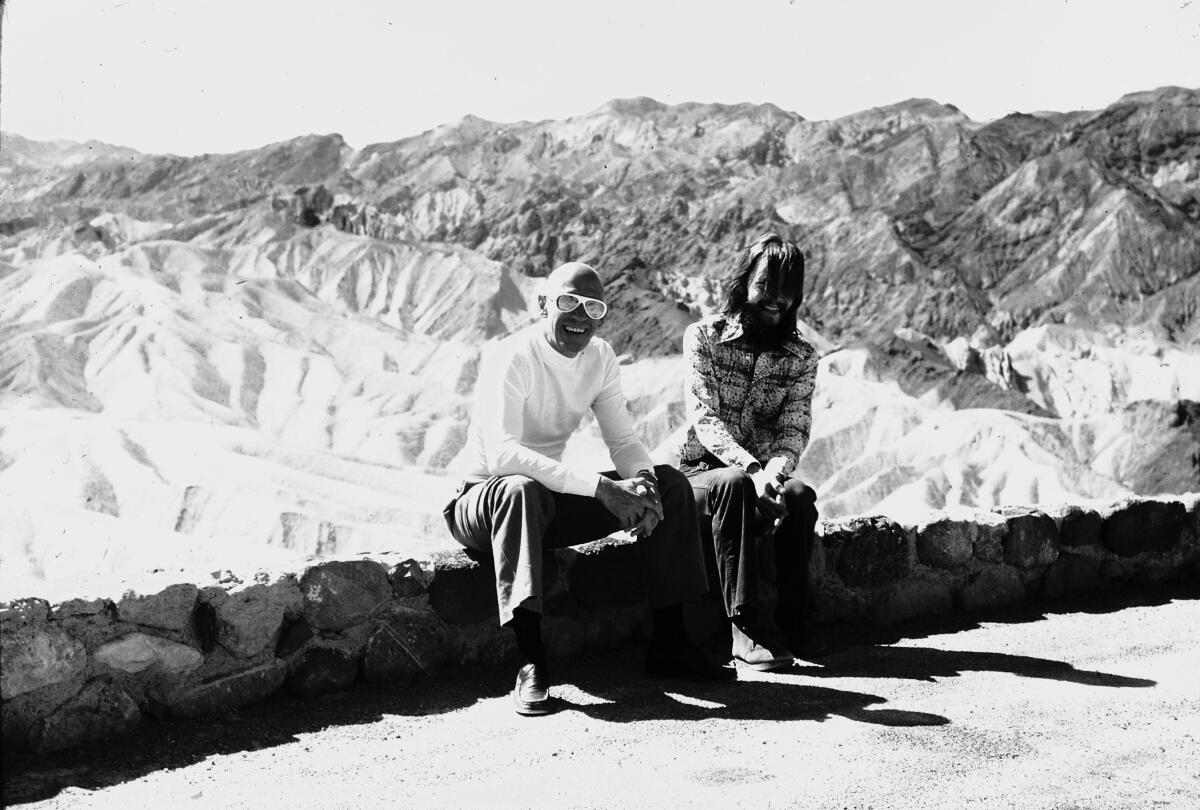
On the Shelf
The Last Man Takes LSD: Foucault and the End of Revolution
By Mitchell Dean and Daniel Zamora
Verso: 256 pages, $27
If you buy books linked on our site, The Times may earn a commission from Bookshop.org, whose fees support independent bookstores.
In 1978 and 1979, the French philosopher Michel Foucault gave a series of lectures on neoliberalism, the set of economic doctrines focused on free market enterprise, limited government and individual autonomy. Foucault wasn’t interested in the nitty-gritty of actual governing. “I have not studied and do not want to study,” he announced in the first lecture, “the development of real governmental practice.” Rather, he was interested in “the art of government.”
A book based on these lectures, “The Birth of Biopolitics,” wouldn’t be published in English until 2008, smack dab in the middle of a historic financial crisis clearly caused by neoliberalism. It was, for his legacy, unfortunate timing. Foucault’s dalliance with the dominant ideology challenged his saintly academic reputation, and numerous articles attempted to defend him against his own late-life transformation. But the consequences were clear, whatever small part he played: Not long after his lectures, Thatcher and Reagan unleashed neoliberalism on the world, and we are still picking through the rubble today.
It all goes back, strangely, to a trip the French thinker took to left-wing California — and a trip he took once he got there. Mitchell Dean and Daniel Zamora’s new book, “The Last Man Takes LSD,” focuses on Foucault’s final decade, from 1975, when he took the hallucinogen in California for the first time, until his death in 1984 of complications from AIDS. During this period, Foucault shifted from the leftist politics of the ’60s toward a more centrist position, a drift hardly rare for his generation under the Cold War. As Dean and Zamora put it, “Foucault and many other post-’68 intellectuals took part in the process of thinking about a Left that was not socialist, a Left that would wipe out the legacy of post-war socialism.”

In this view, a government given too much power by its citizens would invariably lead to totalitarianism. Socialism was viewed as “crypto-totalitarian.” For Foucault, such regimes didn’t merely control their populace, they defined them. Just as he advocated for Roland Barthes’ “death of the author” in interpreting texts, Foucault wanted to strip the state of its power to determine the meaning of its citizens. A radical new conception of selfhood was required, one that would replace earlier ideas of political resistance. Inventing one’s self was, for Foucault, the new form of revolution.
Want to understand how we got to 2020? Look to the 1980s — and two recent books: Kurt Andersen’s ‘Evil Geniuses’ and Rick Perlstein’s ‘Reaganland.’
Ironically, it was Foucault’s experience with LSD in Zabriskie Point in Death Valley, a location well known for its countercultural associations (most notably in Michelangelo Antonioni’s 1970 film “Zabriskie Point”) that pointed him rightward. California in the ’60s and ’70s was a hotbed of leftist activism — from the Berkeley protests to the Merry Pranksters and the Black Panthers. Foucault, on the other hand, discovered a different sort of radicalism. His LSD trip reinforced his opposition to the “hermeneutics of the self,” i.e., interpreting the self as if there were some fundamental and fixed truth of one’s identity.
Instead, Foucault believed in the notion of the “épreuve,” the ordeal, a technique that creates inner truth rather than uncovering it. A person’s identity, according to Foucault, ought to be built through personal trials untainted by external interference, including and especially that of a state. Foucault delved deep into the heart of American individualism and anti-establishmentarianism, but his subsequent realizations showed just how thin the line is between self-reliance and selfishness.
Neoliberalism quickly transformed from a set of economic practices that promote individual freedom into what the writer George Monbiot describes as “a self-serving racket,” enriching the wealthy and codifying systemic inequality. As far back as the ’70s, Dean and Zamora write, neoliberalism “had been revealed not only to be entirely compatible with authoritarian and dictatorial regimes at national levels but, in many instances, to require them.” What began as a reaction to “crypto-totalitarian” socialism morphed into the kind of restrictive ideology it claimed to combat. Friedrich Hayek, the author of the proto-neoliberal screed “The Road to Serfdom,” once stated in an interview that he would prefer a “liberal dictator” to a “democracy lacking liberalism.”

To the authors, Foucault’s exploration of neoliberalism (in addition to his oddly enthusiastic reportage on the Iranian Revolution) “reveal the poverty of key themes” in his legacy. First, “Foucault’s framework would appear to have compromised his capacity to address questions of inequality.” Second, he failed to foresee how a philosophy of “self-management” might create a culture of privilege disguised as meritocracy. Economic competition suggests that the winners and losers deserve their respective places. In the rhetoric of both Newt Gingrich and Bill Clinton in the ’90s, lower-income citizens merely needed to take “personal responsibility,” while the government stepped back from its civic obligations.
Toxic individualism has led the U.S. to have one of the highest COVID-19 death rates in the world. It’s time for a new national myth.
“The Last Man Takes LSD” is not as narrative as its title and premise might suggest — this isn’t “Fear and Loathing in Postmodernity.” But Dean, a professor of politics, and Zamora, co-author of “Foucault and Neoliberalism,” do an excellent job contextualizing Foucault’s research and ideas in his final years. They methodically trace the nuances of the era’s prickly political climate, creating a sympathetic portrait of Foucault’s promotion of a damaging and — for a thinker who fruitfully explored power and exploitation — self-defeating philosophical turn. They are not shy, however, in condemning his intellectual deficiencies during this period. The practices he extolled in his lectures, Dean and Zamora conclude, have “contributed to rising inequality, austerity and public debt, accelerated the corrosion of public services, public office and public trust, and reduced the capacity of actual existing democracies to address the problems of economy, health, security and environment that confront them.”
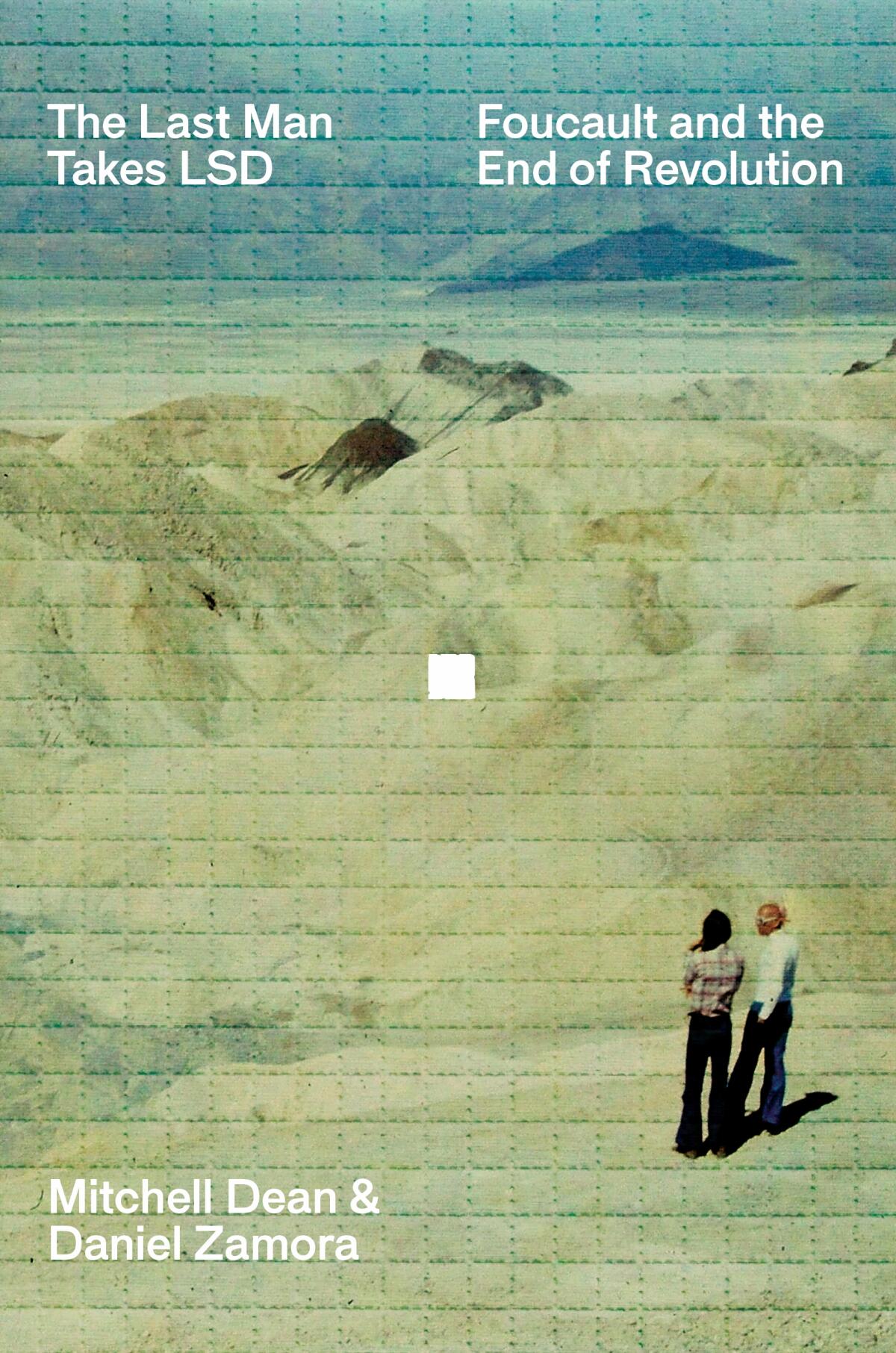
Even if Foucault’s LSD trip wasn’t the sole cause of his burgeoning neoliberalist leanings, it does serve as useful symbolism. Psychedelics can foster mind-expanding revelations, but enacting new governmental policies requires much more than abstract consideration. Foucault was known for his involvement with political activism (described by Colin Gordon as a “man of action in a world of thought”), but his late shortsightedness resides in his unwillingness to explore its practical consequences. An idea that nurtures the mind can still damage the body or corrupt the soul. The problem with an idea like neoliberalism is that it sounded so good in theory.
Clark is the author of “An Oasis of Horror in a Desert of Boredom” and the forthcoming “Skateboard.”
More to Read
Sign up for our Book Club newsletter
Get the latest news, events and more from the Los Angeles Times Book Club, and help us get L.A. reading and talking.
You may occasionally receive promotional content from the Los Angeles Times.
